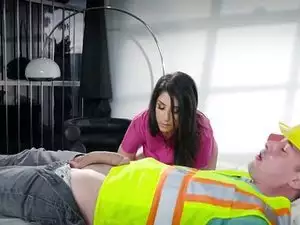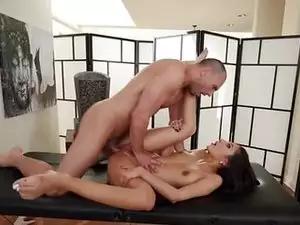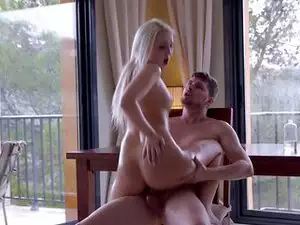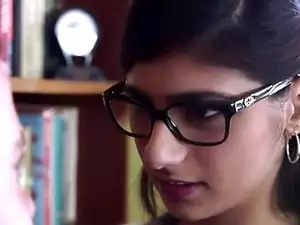The Three Signs - Book 4 - LisaChapter 40: Computer Science Engineering free porn video

The day after Michelle returned home we had the fourth heat of the Quartet Bowl series; again, Lisa helmed us to another good first place, we all enjoyed that race. I think it was a combination of the scenery and the two long spinnaker runs, plenty of adrenaline in running down and passing the boats which would have started before us. There was the added challenge of preventing the other boats that started with us – the other three Young 88s – and any that might have started after us from passing us. I had delegated the job of watching the boats behind us and making sure we knew exactly where they were and what they were doing to Georgina. I liked making sure every one of the crew had a task they were responsible for, it made them feel more involved in the race.
Monday morning I was back in at my office at the university, the minor office layout changes to accommodate the new School administrative areas had been made. From the elevators in the middle of the building, I would go past Professor Hiller’s office area before entering the wing at the eastern end of the floor where the First Year Unit was located. My office was unchanged, I was still in the corner of the building. The main task over the next two weeks was to update all of our handouts for the change in subject numbers, plus entering up all of the lecture plans for COMP3331, the Computer Networks subject. It was also taught as a graduate-level subject, COMP9331. The new subject numbering system had the convention that the first digit indicated the ‘level’ of the subject – 1was for a first-year subject, 2 for second-year, 3 for third, and so on. 9 meant a graduate-level subject. At least that was the convention that the Faculty of Engineering had adopted for all of the schools within that faculty, to me it made sense.
Michelle was taking this week off to finish her recovery from the surgery, but when she returned next week, she would start to make sure all of our filing systems were updated to reflect the new numbering scheme. My next task – a major one at that – was to enter all of the lecture plans and notes that I had worked on over the last few weeks into the computer, using the document template that I used for my plans. Once that was done, I floated them past Ken Robinson and John Lions, to get their comments and thoughts on what I had prepared.
Meanwhile, we were preparing for our two nights playing on the ‘Michelago Bush Dance Train’, we would load equipment into the trailer and drive down to Canberra on Friday. We would use our small PA system for the setup in the community hall in Michelago, and a few practice amps would suffice in the train. Given the timings involved, we would drive down to Michelago, set things up in the hall there before returning to the Canberra Rail Museum to play on the train on the trip down. We would move across with our instruments to the community hall, then back to the train for the trip back to Canberra. All that would be on Friday, we would repeat the train trips and Michelago concert on Saturday, and when we finished playing at Michelago, Chris, Mary Beth, and a few assistants could load our equipment into the trailer, whereupon they would drive back to Canberra. We could all sleep in the sleeping carriages at the rail museum both nights, and return to Sydney on Sunday morning. It would mean Lisa and I missing the Family Race on Sunday, but the others would be able to manage the boat, particular since it was a non-spinnaker race. It should be something different, and it would be a lot of fun.
Chris had checked with the operators of the train to make sure we would have 240volt power on there for the amps, not that we needed a lot of current, we worked out the total power draw would be only 2 amps. He would have a suitable power filter unit that he would plug into the outlet on the train, and we would connect the two amps to that, in case there was some crud and noise on their power circuit. Mary Beth had been speaking with the organizers and told us that the people on the train would generally prefer songs that they could dance to, so Fiona and Allison worked up some changes to our usual folk music sets to include more of the Irish jigs and reels that Fiona learned when she was in Limerick. They were generally pretty easy to pick up, good, toe-tapping tunes that I would accompany on my concertina. We would alternate the main melody lead between Allison, on her fiddle, Fiona on her mandolin or pennywhistle, and me, on my concertina.
It didn’t take us long to get the new songs into reasonable condition, I guess that was the advantage with folk songs since they were designed to be enjoyed by ordinary people, without great musical knowledge or skills. The tunes were fairly simple, musically, catchy melodies and a good, solid rhythm. Everything about each tune that made it a good dance tune also made it easy for us to learn and perfect the sound.
Meanwhile, other things continued; we came in second across the line in the 4th heat of the Blue Water Shield, Michelle returned to work during the last week of February, I finished off the lecture notes for the Computer Networks class, and it appeared the charges against Alan Jones had somehow become reinstated, in full. The backroom deals done at the request of Fox News to suppress the charges didn’t go down all that well with Her Majesty’s Inspectorate of Constabulary, who were not impressed that media companies – even those as well connected as Fox News – could dictate who should and who should not be prosecuted, and what type of charges they should face. There were calls for the Home Secretary, Douglas Hurd to resign, but the Prime Minister, Margaret Thatcher resisted any calls that she should request his resignation, or go so far as to sack him. I guess accountability only went so far.
Jones was in trouble here at home, many of the companies that had taken out advertising slots on his 2UE radio show cancelled their contracts, not wanting to have their name associated with a paedophile. That was where the ‘fun’ started, several of the companies that tried to cancel their contracts discovered that there was no actual contract with the radio station. What Jones had done was to make private agreements to promote their products on the air, in what appeared to be an ‘in passing’ endorsement – what was a ‘cash for comments’ arrangement. This was strictly against the rules for commercial broadcasters, as laid down by the Australian Broadcasting Authority. The broadcaster, 2UE was in deep trouble, but blamed Jones, saying that they did not know any such private arrangements existed. His contract was cancelled and was at risk of being taken to court by either 2UE or the ABA. Of course, there was no way any media organization would risk taking him on in any capacity with that history behind him. With luck, he would fade into obscurity., as would his messages of hate and division.
Naturally, the events concerning him were a prime topic for discussion over dinner at home, we all believed he got what he deserved, not for being a homosexual, but for targetting very young boys. Stewie had particularly strong views about his behaviour as a teacher, encouraging emotional attachments with some of his students.
“There’s a very fine line that exists when you are a teacher,” he said. “You are in a position of trust with your students, you are there not just to teach the material in your subjects, but to be a mentor, a role model, a guide for them. I know that particularly for many of my students, I am the first positive male figure in their lives, most of them look up to me in admiration, at what I’ve achieved in my life, and want to emulate me. There are at least five girls in my classes who have crushes on me, and I have to be very hard not to encourage them.”
“What about consent?” Fiona asked. “I’m sure all of those girls would WANT to have sex with you. If they’re older than sixteen, where’s the problem?”
“Consent isn’t the issue,” Stewie said. “Hell, there are quite a few teenage girls younger than the legal age of consent, fourteen and fifteen-year-olds that would understand completely what they would be doing, and want to do it anyway. But when you are a teacher, you are in a special ‘position of trust’ with your students. It’s the same as someone like a sports coach, boy scout leader, church minister or priest. Because of your position, there’s a special relationship with that child, and to push it beyond that role of teacher, or whatever, even to do what Jones did, encouraging and developing a strong emotional attachment with that person, you’ve seriously overstepped the line. You are taking advantage of a person’s vulnerabilities for your gratification.
“Every year I hear through the departmental grapevine at least one teacher who crossed that line,” he continued. “Not always to the point of them having sex, but certainly going a bit too far in that direction. Several years ago, there was a girl in one of my year twelve classes; a classic case of having a big-time crush on me. One day after class, she came up to me, and asked me if I would like to go and see a movie with her on Friday night, she said that ‘there would be more than just watching the movie’ if I wanted it. I had to tell her that I would have to refuse, as my girlfriend would probably not be all that happy if I did that. But had I not been with Traci ... it would have been so easy for me to cross that line. You’ve probably had similar situations, Will?”
“Yes, I have, although in my case, they are offering to trade sexual favours for better marks,” I said. “But the University has strict rules on relationships between staff and students, that’s a quick way for me to lose my job if I tried anything like that.”
“As it should be,” Stewie said. “For me to do that; even to try to build that emotional relationship, assuming that’s all it was, that Jones had with some of his students, you are betraying your professional ethics, misusing your position of power for self-gratification.”
“There is the same issue with work relationships,” Lisa said. “We are instituting a policy at work, where romantic relationships between staff in the same area are discouraged; and forbidden between a supervisor and any of their subordinates. The imbalance of power and the potential for someone misusing their position means we have to prevent any potential problems. Office romances rarely end well for all involved.”
“The issue with Alan Jones is nothing like an office romance,” Mary Beth said. “He’s just into little boys, and by ‘little’, it seems like the younger the better. He is probably hoping that he doesn’t end up in jail, he wouldn’t last long there.”
“Nah, they keep rock spiders in protective custody,” Stewie said.
“Rock spiders?” Fiona asked.
“Kiddie fiddlers, paedos, they are kept separate from the general prison population for their safety.”
“I’ve got mixed feelings about that,” Mary Beth said. “Although letting natural justice work its way might solve a few problems.”
For the weekend trip to Canberra, Chris and I installed the CB radios in each car, so we could remain in contact on the drive down. We had the trailer packed on Thursday night and left Lane Cove around 9:00 on Friday morning, the aim being to miss the morning rush hour. We stopped at the Paragon Café in Goulburn for lunch – once again, their food was magnificent – and reached the Railway Museum in Canberra just after 2:00 pm. We unloaded our instruments and bags, then Chris, Stewie, Mary Beth and I continued down the highway to Michelago, where the train would stop so we could play in the community hall. It didn’t take us long to get things set up in the hall, and it was then back to Kingston.
We looked at the compartments in the sleeping carriage that would be our ‘home’ for the next two nights, these were the old ‘TAM’ style cars, much older than the sleeping cars used on the Southern Aurora. Each compartment had two bunks, one above the other, with a shower and toilet at each end of the carriage. These weren’t attached to the excursion train but would remain in the covered shed on the museum grounds. We headed over to where the excursion train was being prepared; there was a steam locomotive attached to the front of the train.
“A Class 30, before electrification they pulled all of the suburban trains around the Sydney network,” he said and headed over to inspect it.
“He’s in his element here,” I said to Stewie. “I’m sure he will give us all the technical details about it, and all of the carriages we will be in at some stage!’
We climbed up the small stairs into the excursion train and walked through the carriages until we found where the others had started to set things up. It looked like we were in what might have originally been a baggage car, but the floor had been carpeted and at one end was a slightly raised area where our equipment was set up. It was interesting, there was enough space for us at one end of the carriage, Mary Beth and the others had the amps in place, and there were some chairs and stools for us to sit on. I told Mary Beth that we had set the small PA system up at the hall, and Chris was up checking out the steam locomotive that would be pulling the train.
Mary Beth suggested we have a quick rehearsal, to make sure the amps were set up properly and we had enough space between each other to move and not bump into each other or our equipment. I switched on the amps, and we gave them a quick test, everything worked, and the sound was good. I guess the hard, smooth walls of the carriage were good for the acoustics. It would be interesting to hear how everything sounded once it was full of people. We played through the new jigs and reels and after about thirty minutes we felt things would work. After the first song we moved my amp across a little bit, just so that it wasn’t quite so close to where Allison was standing, but apart from that, the stage area – for what it was – would work well. Time to get ready, we all had showers and got changed, meanwhile, the train was moved across to the main platform to make it easier for the passengers to board.
We sat in one of the passenger compartments, not long after the train left the station dinner was brought around; I was amazed that they were able to cook so many high-quality meals in the kitchen area of the dining car. We were one of the first to be served dinner, along with the crew, once we had finished eating we would set up in the dance car. The train pulled into Queanbeyan, the loco uncoupled from one end of the train, and was quickly turned on the small turntable, and reattached at what would now be the front of the train – the branch line to Canberra joined the mainline to Cooma just south of the station at Queanbeyan, but the track alignment was such that the train was pointing north towards Sydney. I assumed the loco could travel just as well in reverse, but it probably made driving easier if it was running forward. There was a long blast on the whistle, and a jerk as we started moving.
With us underway towards Michelago, we decided to start playing. I said a few words to introduce ourselves, and we kicked off with ‘St. Anne’s Reel’, always a good, rollicking tune. We kept the Irish flavour going with ‘Whiskey in the Jar’, ‘Black Velvet Band’, and a few other of our popular songs. We finished off the set with the heel and toe polka – which proved very popular, as soon as we had finished, everyone cried out for more. We played it through another two times and said we needed to take a break. I looked out of one of the windows, the train was slowly traversing the Monaro Plains, and I could see in the far distance the main range of the Great Dividing Range on the far side of the Tuggeranong Valley, marking the southern extent of Canberra.
It was quite a scenic trip, not that I had a lot of time to take the view in since we had to get back to playing. Another two sets saw the train pull into the little village of Michelago, we carried our instruments the short distance from the station to the community hall. The local Country Women’s Association had prepared some very sinful looking desserts; cakes, puddings, pies and tarts, and in between songs we stuffed our faces, before we heard the whistle of the train, summoning us back for the return journey to Canberra.
On the walk back to the station, one of the passengers asked me if we were part of a larger group.
“I saw you – assuming it was you – playing at the Institute of Sport earlier this year, you guys were really good,” he said.
“Yes, we are a subset of the ‘Roberttones’,” I said. “A bunch of us play folk and bush music on occasions at a pub in Sydney.”
“Quite a difference in musical styles, isn’t it?” he asked.
“I guess so, but we started out playing music from the forties and fifties in a dinner/dance venue,” I said. “The main thing we are into is playing music – any music – that people enjoy listening to.”
We played solidly on the journey back to Queanbeyan, I had no idea how everybody maintained the energy and enthusiasm for dancing, but they did. After having the engine move from one end of the train to the other, it was back to Canberra, where we were able to pack up and return to our sleeping cars to collapse. It had been a long and tiring day, but incredibly enjoyable, particularly squeezing into the narrow bunk with Lisa and then she switched bunks and I slept with Fiona.
Saturday we were able to sleep in and after a refreshing shower we headed up to the Manuka shopping centre for a belated breakfast. We had to run the gamut of various political parties handing out ‘how to vote’ material for the first ACT Local Government election, which was due to be held on the next weekend. I was particularly intrigued by the ‘Sun-Ripened Warm Tomato Party’, it seems that because of the strange voting system foisted onto the self-government legislation by the Democrats in the Senate, a modified D’Hondt method, which favoured political parties rather than individual candidates. It appeared that the actual ballot would involve 117 candidates spread across 17 parties, with a ballot paper more than a metre wide.
We found a little café with some tables outside, under some large trees; that seemed to be quieter along that side of the shopping centre rather than on the Franklin Street side, facing the cinema. After we had finished eating, we poked around the shops, before heading back to the railway museum. We spent the time looking around at some of the exhibits, Chris telling us a bit about the history of the various items of rolling stock.
The Saturday night excursion was much the same as the previous night; non-stop playing from the time the train left Queanbeyan until we returned several hours later. It was very rewarding, the crowd was really into the music, and was very appreciative of us playing. At least we didn’t have to travel far to where we were sleeping. In the morning, it was a quick drive down the highway to Michelago to pack up our equipment from the community hall, then back to Sydney, the end of a very enjoyable weekend away. While not a particularly profitable gig, when the cost of travel was taken into account, it was a whole lot of fun, and for us, the first time we had played on a moving train.
Fiona’s Crisis of FaithApril 1989
Our weekend trip to Canberra for the Bush Dance train marked the end of my Summer break, the Monday after we returned home it was into University for the start of another year. My timetable was much as before, part-time classes on Tuesday and Wednesday evenings, thesis review meetings every morning from 8:00 to 9:00, except Mondays, which were the usual (boring) school and faculty meetings. The Computer Networks and Applications subject – at least the third-year, undergraduate version – wouldn’t be on until the second semester, but I would have a chance to see how my lecture plans went with the post-grad version this semester. There would still be time for my regular Friday lunches with Alexa – well, they were more than lunch, we also talked about technology-related issues, all part of my ‘consulting services’ to Bitola. I also had plenty of free time to work on my research projects, too.
Things seemed to work fairly well with the new structural arrangements, even though we were no longer part of the School of Electrical Engineering, we still worked closely with them, students doing an Electrical Engineering degree would take several Computer Science subjects, just as those doing a Computer Engineering degree would also study some Elec Eng subjects. I was still reserving my judgment on Professor Hiller, he certainly had the academic and research record for the head of the school, it was just his views on the role of the university and how we should fulfil our role in society that troubled me.
That, however, wasn’t of immediate concern to me; my time was occupied with all of the work involved in starting a new semester; making sure all of the tutors were up to speed with how each subject would be evaluated and their roles in student assessment, reviewing the project plans for my thesis students and making sure they would properly address the subject they were given. I worked with Michelle to make sure all of the filing systems were ready for student results, assignments and tutorial projects. We had already set up the student project directories for the Computing 1A subject; following the cheating debacle of a few years earlier, we had a far tighter security system set up. Initially, each student was the only student with ‘write’ or ‘read’ access to their directory on the teaching Unix systems; mind you, the accounts for the other lecturer and tutors for that subject had full access to all student directories. Once students had formed into programming teams, we would give each team member access to the directories of the other team members. Any student not part of the team wasn’t able to even scan any other directories, that way no one should be able to copy another student’s programs. Of course, someone could always fish a program listing out of a garbage bin, or take it off the printer, but there was little we could do to prevent that from happening. That was one of the main changes we introduced in the wake of the O’Connell plagiarism scandal. It did mean more work for us in administrating the access controls, but David had written a program that worked off a list of students, their tutorial class number and group ID to automatically run the Unix ‘chmod’ commands, and at any time we could verify that the security settings matched the class lists.
We had written a program that allowed any of us (mainly Michelle) to maintain a database of classes, students, tutorial groups and programming team for all of the computer science subjects. It showed, among other things, the assignment of tutors, when and where each group met, and all of the other information we needed, that wasn’t included in the main centralized student records system.
I asked Michelle how she was feeling after the operation, how her recovery was going and if there had been any side effects.
“I’m feeling good, no pain, but I’ve still been taking things pretty easy,” she said. It’s a pain taking the hormone pills every day, but I guess I have to do that since my ovaries aren’t there to produce them for me. The only real side effect, if you can call it that, is I lost my boyfriend because of it. Garry called me the other day, he asked if he could meet me for lunch one day this week; probably at the Doncaster Hotel.”
“Are you going to see him?” I asked.
“Of course, I need to apologise to him in person for how I treated him, not taking him into my confidence,” she said. “Despite us breaking up, I’m hoping that we can remain friends.”
“That’s good, I know he feels terrible about what happened, and he was in a difficult situation,” I said. “He either had to break up with you now or stay with you and eventually leave you for someone else.”
“I know that, and I should never have placed him in that situation,” she said. “Not by not getting ovarian cancer in the first place, although that would have been ideal. I should have told him about my family history of cancer when we started to get serious, so he knew something more about me early on in our relationship. Then when I was getting the diagnosis, he would probably have known what was likely. Anyway, I will have lunch with him, even if we aren’t lovers any more, I still want to be friends with him. I think he wants that, too.”
“I think we both know just how critical it is to have good friends in our lives,” I said. “Just how you are a very good friend to me, and we aren’t lovers.”
“You don’t have to remind me about us not being lovers,” she said, winking at me.
“What would you prefer our relationship to be,” I asked. “Lovers or close, strong friends?”
“Yeah, I know,” she said. “Having you as a close friend, I don’t want to lose that.”
The first few weeks of the semester, while hectic, passed without problems, and the mid-semester break coincided with the Easter weekend. On Thursday, I battled the crowds at the Fish Markets and got several kilos of fresh tiger prawns for our Good Friday (meatless) meal. When I got home, Fiona was looking very upset, Lisa was hugging her, and I asked her what was wrong.
“It’s my father,” she said, between sobs. “Mum called a bit earlier, and he’s been diagnosed ... diagnosed with stage four prostate cancer. He had been feeling a bit off-colour for a few weeks, went to the doctor for a checkup, and they did a full panel of blood tests. His PSA levels were through the roof, about twelve point something; normally they should be below one or two.”
“Oh, Fiona, that’s terrible,” I said. “What is the prognosis? I assume stage four is pretty severe?”
“Yes, and the cancer has spread – metastasized – to some other organs, the pancreas in particular. They are going to operate, he’ll be up at the Repat Hospital at Concord later in the month, but they aren’t holding out much hope. He blames his role in the British and Australian atomic bomb tests at Maralinga in South Australia, back in the 1950s. They were told by the authorities that it was perfectly safe, but they had Australian Army and Air Force personnel walk across the bomb detonation site a day after the explosions, taking test measurements and stuff like that. I’m sure that’s how he got the cancer!”
“Damn, Fiona, what can we do to help? I assume your mother will be coming up while he’s in hospital?”
“I know it’s a lot to ask, but could she stay here?” she asked. “They don’t have any facilities at Concord for family members to stay, and I don’t want her by herself in a hotel.”
“Not a problem, she can stay as long as she needs to,” I said.
“And when he gets out, he needs to be close by for rehab and follow up treatment,” she continued. “Can he stay with her then?”
“Of course, as long as they need accommodation in Sydney, they can treat this as their home away from home,” Lisa said. “I guess you probably won’t be able to sleep with us, that might be a bit complicated to explain, but your father’s health is more important.”
“And if Jim and his girlfriend want to come up at any time, they can stay here, too,” I said. “One thing that we aren’t short of is accommodation.”
Fiona’s announcement made the next few days rather somber, not that Easter was a particularly festive occasion. On Good Friday the three of us went to the early morning Mass at St. Michael’s, after the service Fiona spent some time talking with Father Timothy, no doubt to get some spiritual comfort from him. Over lunch, Lisa asked Fiona if talking with Father Timothy had helped her.
“Well, he gave me the stock answer that I expected,” she said. “The standard stuff, about how God will support us, and if we feel overwhelmed by events, to rely on Him, all the usual platitudes.”
Fiona sounded rather bitter, as if what the priest said wasn’t what she wanted to hear.
“I wanted him to explain to me how God, if he is such a loving God, why would He make people go through suffering like that? Assuming He’s the creator of everything, why would he create cancers and other debilitiating illnesses? And why did He allow the human body to be so susceptible to those illnesses? I’m seriously starting to doubt everything that the Church has taught me. If a priest can’t give a good explanation on why bad things like that happen, then what am I to believe? Do you have any answers, Will? You always seem to know the right thing about all of this stuff.”
Well, I did know something, and that was her concept of ‘God’ – and the Christian church’s concept – wasn’t how things really were, I had learned that from Jillian and my interactions with the other Guardians, but I really couldn’t tell Fiona that. But she clearly needed some reassurance, something more than just empty platitudes like ‘God knows what is best for us’. But I didn’t want to say anything that might cause her, or Lisa to lose their faith; I felt that at a time like this, having something to believe in, even if I knew it wasn’t exactly true, was going to be of benefit to her mental state.
“I think – and this is just my own personal view – I think that much of what the established churches say and preach about the ‘nature of God’ is simplistic or a misinterpretation or downright wrong,” I said. “They are all caught up in the concepts of God being omnipotent, omnipresent and omnisicient, and they somehow imagine God as an entity, sort of like Charlton Heston, sitting at a vast control panel. Imagine those images of big railway signal boxes, like the ones near central station, with all those levers controlling signals and points and stuff like that, but instead of a vast team of operators running it, there’s one person – God – pulling the levers, literally. Their view of God is someone who is constantly monitoring everything going on in the world, and adjusting this, tweaking that, starting or stopping something. He is in direct control of EVERYTHING.”
- 09.04.2020
- 26
- 0




























































